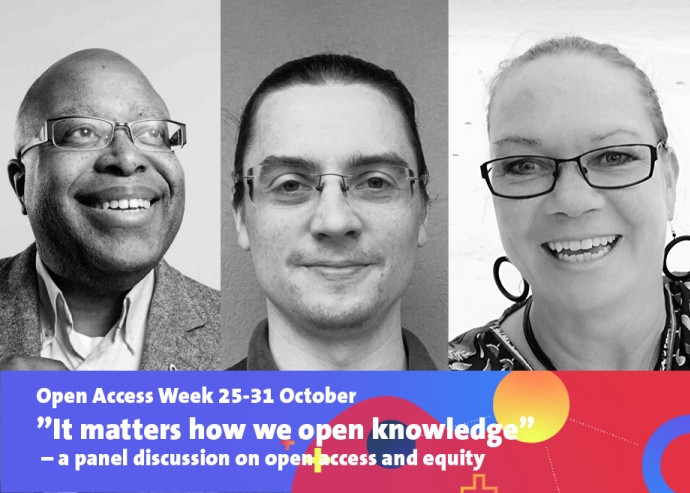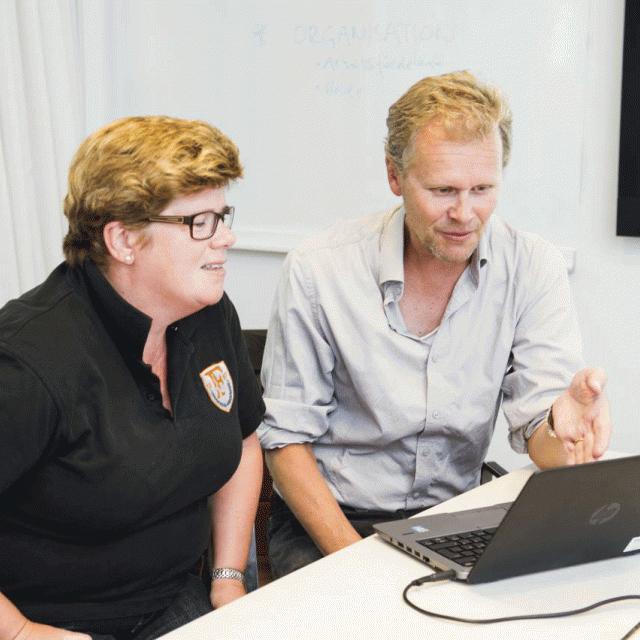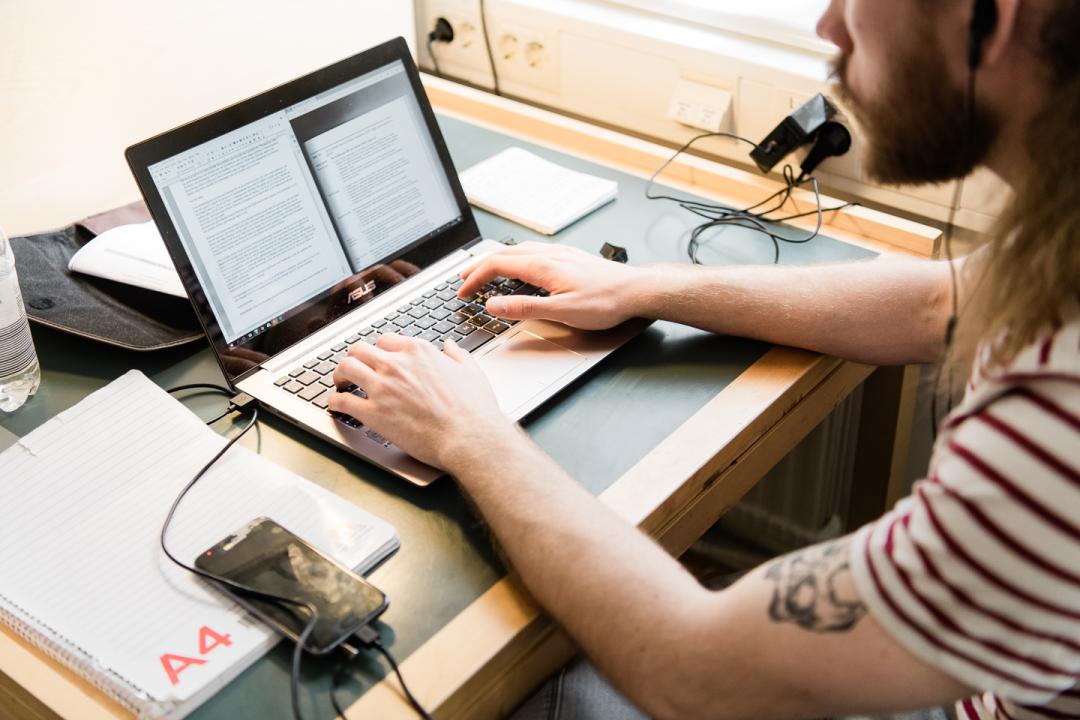International Open Access Week at KIB
At the University Library we constantly strive to spread knowledge and increase awareness about open access and what we are doing to promote open access as an international norm for scientific publishing. However, we place extra emphasis on this topic during International Open Access Week, which this year takes place 25-31 October.
Panel discussion about equity
This year's theme for Open Access Week is "It Matters How We Open Knowledge: Building Structural Equity". We explored this theme through an online panel discussion, where the panel consisted of one researcher from each of the three universities of the Stockholm Trio University Alliance: Karolinska Institutet, KTH and Stockholm University. The event took place in Zoom Thursday 28 October at 12:15-13:00.

Recording of the panel discussion
Did you miss the event? Here is a video recording of the panel talk.
Answers to questions from the audience
At the end of the panel talk the moderator opened up for questions from the audience. It was not possible to answer them all, so the panel participants provided answers to some of the questions after the event.
"Would a campaign where society gets aware of the costs of publishing would help or harm academia? Elsevier has a margin higher than Google or Microsoft, while tax payer believe we spend the money to cure diseases etc.."
Terrence Brown:
“The publishing business is not a charity and is free to earn as much as it can legally and ethically. On the other hand, anyone is also free to publicize how much money the publishers are making. Currently this business model is the predominate one, this does not mean it has to be the only one nor does it mean that it will or should last forever, but it will persist unless a new, better one replaces it. By the way, my own journal costs over €600 per year which is way too much. I wish it were much, much cheaper.”
"Isn't it a bit too simple to equate high level of citedness with good quality of the cited paper? Some papers that were subsequently retracted due to lack of supporting evidence of results had a high level of citedness."
Paula Timonen:
“Citedness is obviously not a guarantee of quality, it can even be misleading. That is why the rigorous processes that go into academic publishing must be adhered to by publishers as well as scholars.”
"What do you think of encouraging use of open data, even when you produce your own data (as an independent dataset, for ex.)? Would it promote sharing data (since it would be more cited that way) and make research more comparabel? Or would it promote not producing your own data or cause any other detrimental effects?"
Gustav Nilsonne:
“I believe that data sharing is currently under-incentivized. Some researchers fear that if they share the data they have gathered, others will publish on it and get the credit. This fear is not altogether unfounded in my opinion. But I believe the benefits generally outweigh the risks: data sharing can lead to increased impact, new collaborations, and as the questioner implies, more reliable research conclusions overall. I recommend researchers to make use of strategies to align data sharing with current incentive structures, e.g. by writing data papers describing the resources they make available, and I recommend funders and policy-makers to look for ways to reward data sharing by researchers.”
A closer look at the numbers
Karolinska Institutet's policy for open publication has existed in its current form for almost a year. In connection with the international open access week we have analysed data on the transition to open publishing at Karolinska Institutet.
Open access publishing on the rise at KI
Karolinska Institutet's policy for open publication, which in short states that KI's researchers must make their peer-reviewed publications open and freely available (open access, OA) under an open license, has existed in its current form for almost a year. In connection with the international open access week that is currently taking place, we will here present statistics on what the transition to open publishing looks like at Karolinska Institutet and to what extent open access publications are cited.
Learn more
Download
- Policy for open publication at Karolinska Institutet (PDF, 123.84 KB)
KIB's events about open access
- 2024-04-25 - 10:00
Contact the library

Publication support
Contact us with questions regarding open access, KI's publishing agreements, bibliometrics, publishing in KI Open Archive and strategic publishing.

Data Access Unit
The Data Access Unit at the University Library helps you making research data available and open access where applicable. We're part of Research Data Office (RDO) at KI.
If you would like us to get back to you, please submit your contact information in the form below along with your feeback.
